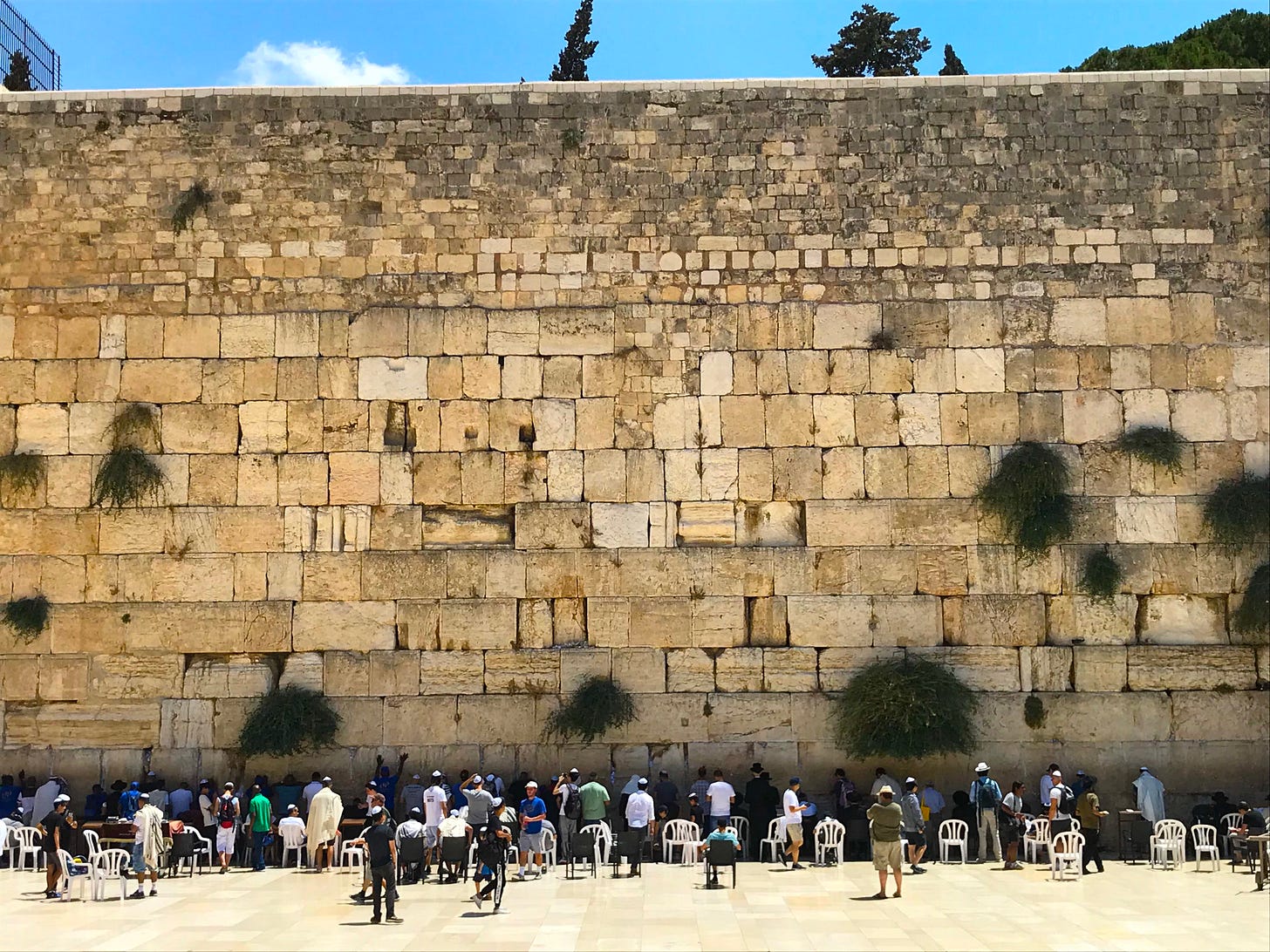Before getting into today’s column, please let me apologize for its delay. I’m writing another book presently, which can be an all-consuming feat. I hope the efforts will be worth it. Subscribers here will be the first to know about this project when it’s ready to be announced.
The first time I went to Israel, I was a guest of its national Holocaust memorial, Yad Vashem. For a week, along with a handful of other Canadian journalists, I learned the ins and outs of Holocaust history and historiography from survivors and some of the world’s leading scholars.
I learned about the depravity the Nazis unleashed on the Jewish people. I learned about a teen boy who wrote in a different language in his diary when he was scared so his little sister couldn’t read it and get scared herself. I learned more about the extent of the dehumanization of European Jews than I had ever known.
It was sobering and jarring. And yet, none of what I learned was as shocking as how hopeful everyone I spoke to was.
It was an odd juxtaposition at the time, though far less so the more I’ve learned about Israel and Israelis.
A return trip a few years later was just as eye-opening. This trip was broader in focus, exploring Israel’s politics, culture, and economy. At one point, we were learning about hydroponics in the Golan Heights while hearing faint explosions from across the Syrian border. Our guide hadn’t heard them, having tuned them out long ago.
At the time we were there, in 2015, there had been a spate of stabbings of Jews. Such a phenomenon in Canada would have put the country on high alert. In Israel, things were business as usual.
The existence of Israel’s renowned Iron Dome is predicated on the fact that the country expects to be besieged by rockets on a regular enough basis.
Simply by living in Israel, people are accepting a higher-than-normal risk of harm. And yet, it’s hard to go anywhere without meeting an Israeli who was born somewhere else. They choose to be there because of what Israel means to them. Jews are indigenous to Israel. When they go to Israel – even for the first time – they’re going home.
Since my first time there, Israel has had a place in my heart.
I’m not Jewish, though as a Christian I still maintain a deep spiritual connection to the land and its sites.
What happened on October 7 was inexcusable. Hamas killed 1,200 Israelis, most of whom were civilians, and kidnapped over 200 hostages. While much of the western world condemned these attacks, in the weeks since the masks have started to fall, and we see an alarming number of people who at best are indifferent to Jews, but often hold them in contempt.
For years, Israel’s enemies claimed their issue was never with Jews, but with Israel. Any defense to this distinction has vanished now that Jewish community centres, restaurants, and the private homes of Jews have been targeted thousands of miles away from Israel.
Israel is held to a standard no other country is. When people call for a “ceasefire,” they are saying Israel should be expected to have its citizens bombed, its children kidnapped, and its girls raped without recourse. It’s not possible to believe this without accepting that Jewish lives do not have value.
That such a belief is so commonplace in western societies is precisely why Israel is so important. Even with the rockets, terrorism, and continued threats to its existence, Israel offers a home for Jews that the rest of the world has failed to provide.
I will always love Israel and its people – the Jewish people. They have created in a small patch of desert, surrounded by those who wish to kill them, a vibrant and prosperous land that responds to terror with triumph. Every time.
Thanks for reading this. If you want to keep on top of future dispatches, please make sure you’re on the mailing list by clicking the “Subscribe now” button above.




